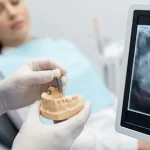Been in a car accident in Florida? You’re not alone.
Florida experiences around 400,000 car crashes annually which leaves thousands of residents to sort out insurance claims and legal options following an accident.
The good news?
Knowledge of Florida’s particular insurance regulations can greatly affect the compensation you obtain and the efficiency of your claim process.
What You’ll Learn Today:
- Florida’s No-Fault Insurance System
- Steps After a Florida Accident
- Understanding PIP Coverage Limits
- When You Can Sue the At-Fault Driver
- Critical Deadlines You Can’t Miss
- Common Claim Mistakes to Avoid
Florida’s No-Fault Insurance System: The Basics
Florida operates under a unique no-fault insurance system which functions differently than those found in most other states. Understanding this system requires prior knowledge because it can be difficult to grasp.
Here’s the deal:
Under Florida’s insurance system your Personal Injury Protection coverage pays for medical expenses and lost wages after a car accident no matter who is at fault. Every Florida driver is required to carry Personal Injury Protection (PIP) insurance which provides this coverage.
But here’s what trips up many drivers…
The PIP coverage pays 80% of medical bills and 60% of lost wages but doesn’t exceed $10,000 in total. Today’s medical expenses mean that the $10,000 coverage limit from PIP can be depleted very fast following a minor car accident.
A car accident attorney assists with legal navigation when serious injuries are present.
Critical Steps to Take After a Florida Car Accident
Your actions during the first minutes, hours and days after an accident dramatically affect your chances of getting compensation. Here’s your post-accident checklist:
- Ensure safety first: Relocate to a secure spot if it’s possible to do so and perform an injury assessment.
- Call 911: In Florida drivers must report all accidents that result in injuries or significant property damage.
- Document everything: Document the accident by photographing the vehicles involved as well as the entire scene and any physical injuries you sustain
- Exchange information: Collect full names, contact information, insurance details, and license plate numbers from all parties involved.
- Seek medical attention immediately: Injuries may show symptoms later even if you currently feel well.
- Notify your insurance company: Report the accident to your insurance company without delay while maintaining factual accuracy.
- Keep detailed records: Maintain comprehensive records that include medical bills and repair estimates along with all correspondence.
Florida Accident Statistics: Why Legal Help Matters
Florida faces an extensive challenge with road safety problems.
- Through December 7, 2023 Florida recorded 359,560 crashes and projections indicate the total will approach 397,500.
- Fatalities: 3,007 deaths in the same period
- Florida experienced 95,543 hit-and-run crashes which constituted 26% of total crashes and resulted in 241 deaths.
- Alcohol-related crashes accounted for 4,383 incidents which led to 197 deaths.
Comparison to past years reveals troubling trends. The year 2022 resulted in 3,574 deaths from crashes and caused 252,123 injuries. The minimal reduction to 250,037 injuries in 2023 provides scant reassurance.
Vulnerable road users face particular danger:
- The number of motorcyclist fatalities decreased to 347 deaths in 2023 (partial year data) from 598 deaths in 2022.
- In 2023 there were 435 pedestrian deaths which decreased from 777 in 2022
PIP Coverage Limits: When $10,000 Isn’t Enough
Florida requires all drivers to possess Personal Injury Protection (PIP) coverage which imposes severe obstacles for accident victims suffering serious injuries due to restrictive coverage limits.
Let’s break down what PIP actually covers:
- 80% of reasonable medical expenses
- 60% of lost wages
- $5,000 in death benefits
- All up to a maximum of $10,000
Consider this scenario: Medical expenses from a moderate accident typically exceed $15,000. Your PIP coverage applies to $8,000 of expenses but you must pay the remaining $7,000 out-of-pocket because the limit is set at 80% of up to $10,000. The financial impact increases when you miss work.
Florida drivers have the option to step outside the no-fault system when they can prove “serious injury” according to state law.
You have the right to file a lawsuit against the responsible driver if your injuries meet the criteria of a “serious injury” according to Florida law.
- Permanent and substantial loss of a crucial bodily function meets the requirement for serious injuries.
- An injury that doctors expect to remain permanent shows medical probability that it won’t improve over time.
- Significant and permanent scarring or disfigurement
- Death
The problem? Florida’s insurance requirements do not include mandatory bodily injury liability coverage for drivers. An at-fault driver may lack adequate insurance to cover damages exceeding your PIP benefits because Florida doesn’t mandate bodily injury liability coverage.
Timelines: Don’t Miss Critical Deadlines
Car accident claimants in Florida must adhere to stringent time limitations.
- To receive PIP benefits you need to seek medical treatment within a 14-day period.
- According to most insurance policies you need to report an accident within a 30-day period.
- Personal injury lawsuits must be filed within four years of the incident.
- A wrongful death claim must be filed within a two-year timeframe.
Failure to meet these deadlines will result in the complete loss of your eligibility to receive any compensation.
The Impact of Florida’s Comparative Negligence Law
Florida adopted a modified comparative fault system in 2023. Under the new law:
- You are ineligible to claim damages if your fault exceeds 50% under the modified comparative fault system.
- Individuals who share 50% or less of the fault for an accident will receive a decrease in their damages equivalent to their share of the responsibility.
If you receive $100,000 in damages but are determined to be 30% responsible for the incident your compensation will be reduced to $70,000.
Common Mistakes That Can Hurt Your Claim
Mistakes during insurance company interactions may lead to reduced compen
sation payments.
- Delaying medical treatment: Insurance companies frequently claim injuries must not be serious when medical treatment was not sought immediately.Providing recorded statements without guidance: Your statements during recorded interviews can be utilized by insurers to reduce your compensation claim.
- Accepting quick settlement offers: Initial settlement offers from insurance companies often fall short of your claim’s true value.
- Posting on social media: Insurance adjusters track your social media accounts to find evidence that contradicts your claim.
- Not following medical advice: If you skip medical appointments and don’t follow medical instructions it will weaken your legal case
When to Consider Hiring an Attorney
Consider consulting an attorney if:
- You’ve suffered significant injuries
- Multiple parties are involved
- The insurance company either turns down your claim or proposes a minimal settlement amount.
- Disagreements exist about who should be held responsible
- You’re being blamed for injuries to others
- The vehicle collision you experienced involved either a hit-and-run driver or an uninsured motorist.
A majority of car accident attorneys provide no-cost initial consultations while their fees depend on winning your case and obtaining compensation.
What You Need to Remember
The complexity of Florida’s car accident claims process stems from its distinctive no-fault system combined with updates to comparative negligence regulations.
The high number of crashes totaling 359,560 alongside over 3,000 fatalities in Florida by December 2023 makes it essential to understand your rights and options before undertaking the claims process.
Following an accident you must focus on these vital actions:
- Prioritize your health and safety
- Document everything thoroughly
- Understand your insurance coverage limitations
- Know when to seek legal guidance
- Be aware of all applicable deadlines
Your recovery from both physical and financial perspectives depends heavily on this knowledge when you deal with any collision from a minor fender bender to a serious accident.







